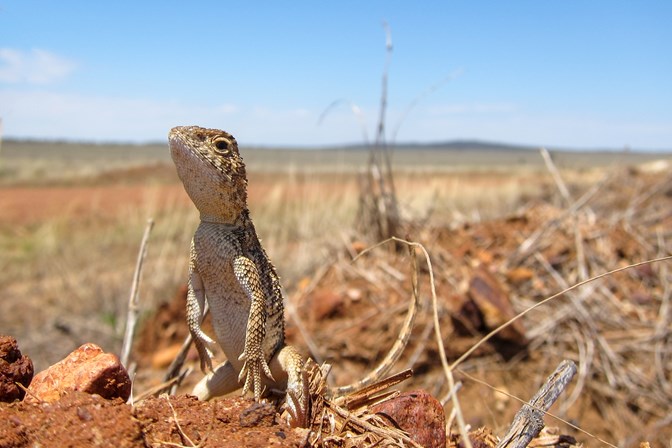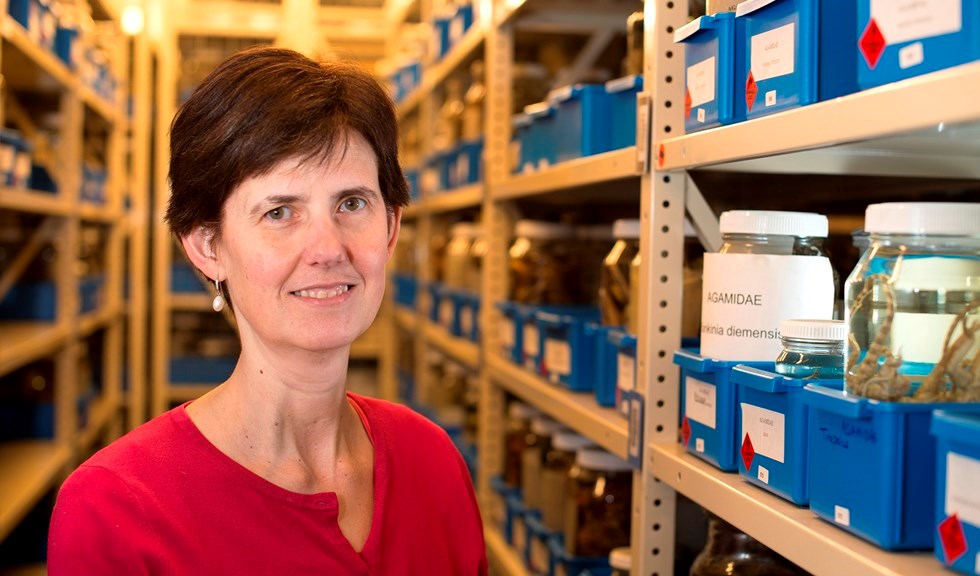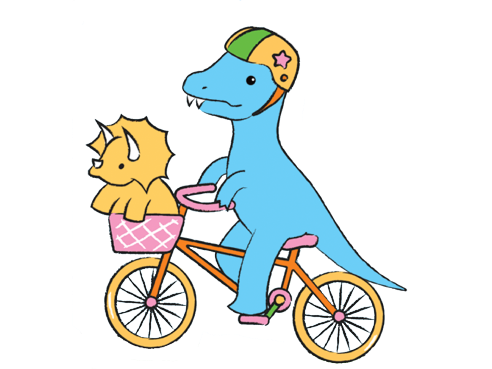Australian reptiles highlight urgent need for taxonomic research in the fight against biodiversity loss
New study shows the need for focusing conservation efforts on identifying and classifying new species, with biodiversity loss feared greater than realised.
Research published today in internationally renowned Open Access journal PLOS Biology has emphasised the importance of prioritising taxonomic research in conservation, with biodiversity loss greater than realised due to the high number of unknown and undocumented species.
The paper published under lead author Dr Jane Melville, senior curator of terrestrial vertebrates at Museums Victoria and Associate Professor in the School of Biological Sciences at Monash University, establishes a new return-on-investment method of determining species that are a priority for taxonomic research: undescribed species that are likely already threatened.
Implementing this method on 870 Australian snakes and lizards – a highly diverse group of vertebrates – Melville’s research has identified 282 reptiles needing taxonomic research. Of these, 17.6% comprise undescribed species of conservation concern, and 24 species are in need of immediate taxonomic attention, as they are likely already threatened or at risk of extinction.
The 24 high-priority species belong to a range of families including geckos, skinks and dragons found across Australia. Australia is considered the global hotspot for squamate reptile species, with 98% of squamates found only in Australia.
‘The results were a bit shocking to us – the level of species still undescribed is higher than we would have expected, and the high proportion that would be of conservation concern shows the importance that taxonomy plays in conservation,' says Dr Melville.
Examples of recently described reptile species that are likely to receive critically endangered status include the Pinnacles Leaf-tailed Gecko (Phyllurus pinnaclensis), Arcadia Velvet Gecko (Oedura lineata), and Olkola Slider Skink (Lerista anyara), all found in Queensland.
‘There are many species that we haven’t yet discovered, and until a species is known to science, we can’t evaluate its status, much less take action to preserve it. The question is: where do we devote our efforts?’ says Jonathon Losos, director of the Living Earth Collaborative and the William H. Danforth Distinguished University Professor in the Department of Biology in Arts & Sciences at Washington University in St. Louis. ‘Jane Melville and colleagues have done a fabulous job in coming up with a way to prioritize resources and research effort, focusing on those organisms where the payoff will be the greatest'.
Dr Melville notes that this issue extends far beyond reptiles, with many highly diverse groups of organisms needing significant taxonomic work to provide a comprehensive picture of our environment.
‘The number of undescribed species is far greater in mega-diverse groups, such as insects and fungi, but even in vertebrates there is an astounding extent of taxonomic uncertainty – there is hidden diversity all around us’.
This research is a collaborative effort of 30 authors who are experts in Australian reptile taxonomy and systematics. It was part of Dr Melville’s Fulbright Fellowship at Washington University in St. Louis, USA.
Museums Victoria aims to inform understanding of our changing environment and contribute to the long-term protection and recovery of Australia’s endangered species and native fauna.
Support our world-leading experts to continue vital research, conservation, and education programs to advance biodiversity and ensure a thriving future. Learn more
Interviews available with Dr Jane Melville.
For interview requests and media enquiries please contact:









